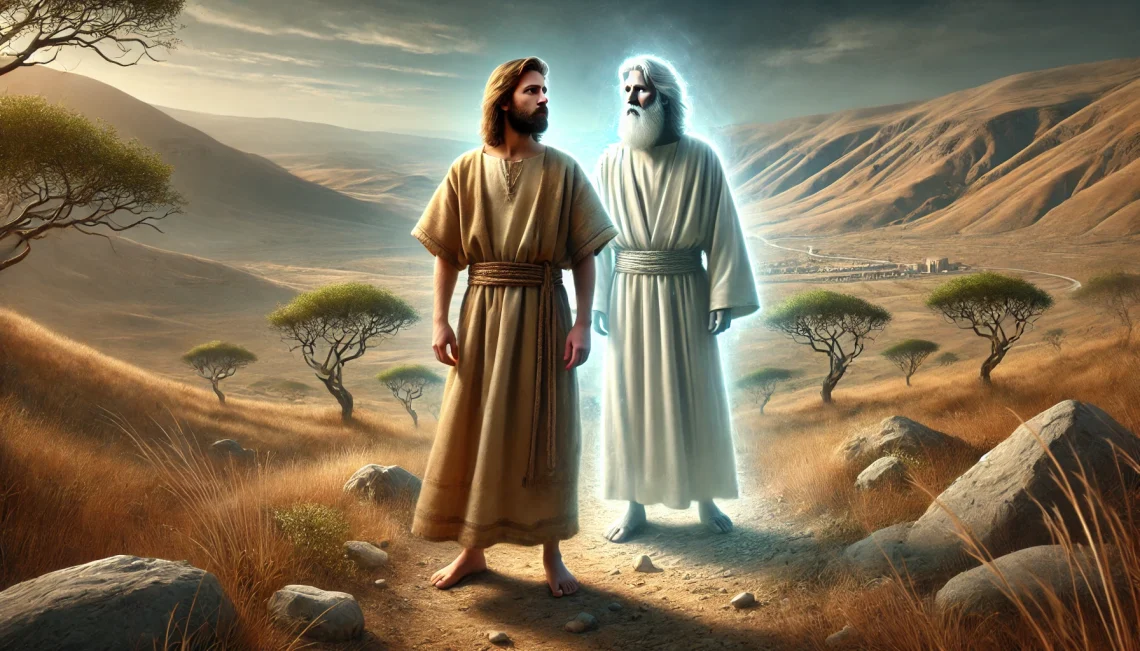Matthew 11:7–14 records Jesus addressing the crowd about John the Baptist, asking, “What did you go out into the desert to see? A reed swayed by the wind? If not, what did you go out to see? A man dressed in fine clothes? No, those who wear fine clothes are in kings’ palaces. Then what did you go out to see? A prophet? Yes, I tell you, and more than a prophet. This is the one about whom it is written: ‘I will send my messenger ahead of you, who will prepare your way before you.’ I tell you the truth: Among those born of women there has not risen anyone greater than John the Baptist; yet he who is least in the kingdom of heaven is greater than he. From the days of John the Baptist until now, the kingdom of heaven has been forcefully advancing, and forceful men lay hold of it. For all the Prophets and the Law prophesied until John. And if you are willing to accept it, he is the Elijah who was to come.”
Jesus quotes Malachi 3:1, portraying the messenger as a prophetic figure. Malachi 4:5 identifies this messenger as “the prophet Elijah,” whom Jesus equates with John the Baptist. But does this imply John the Baptist was Elijah reincarnated? Not at all.
First, Jesus’ listeners (and Matthew’s readers) wouldn’t have interpreted His words to mean reincarnation. Elijah didn’t die; he was taken to heaven in a whirlwind (2 Kings 2:11). Suggesting reincarnation or resurrection of Elijah ignores this context. The prophecy of Elijah “to come” would more likely be seen as Elijah’s return from heaven.
Second, the Bible clearly states John the Baptist is called “Elijah” because he came in the “spirit and power of Elijah” (Luke 1:17), not because he was Elijah literally. John the Baptist is the New Testament forerunner for the Lord, just as Elijah was in the Old Testament (and possibly in the future, per Revelation 11).
Third, Elijah himself appears with Moses at Jesus’ transfiguration after John the Baptist’s death. This wouldn’t occur if Elijah had transformed into John (Matthew 17:11–13).
Fourth, Mark 6:14–16 and 8:28 show that people and Herod distinguished between John the Baptist and Elijah.
Finally, John the Baptist himself provides proof. In John 1:19–23, he identifies himself as the messenger of Isaiah 40:3, not Elijah from Malachi 3:1, even explicitly denying he was Elijah.
John did for Jesus what Elijah was to have done for the coming of the Lord, but he wasn’t Elijah reincarnated. Jesus identified John the Baptist as Elijah, while John the Baptist rejected that label. How can we reconcile these teachings? A key phrase in Jesus’ identification must be noted: “If you are willing to accept it, he is Elijah.” This means John the Baptist’s role as Elijah depended on people’s response to his message. To those who believed in Jesus, John functioned as Elijah, for they accepted Jesus as Lord. To those who rejected Jesus, John the Baptist did not fulfill this role.






Leave a Reply